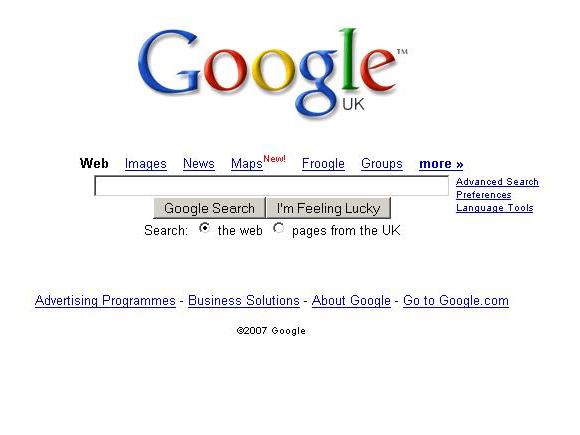Semantic search engines challenging Google
Can understand and interpret questions asked

Google, eat your heart out - the next generation of search engines will be able to interpret questions put to them; not simply scour the internet looking for keywords.
Business search firm ZoomInfo yesterday revealed what it claims to be the first-ever semantic search engine , while a product from Powerset can answer straight questions. And a research team at Wright State University is developing a web technology that will "connect the dots" between information available online.
ZoomInfo's vice president of products Russell Glass said that the current big search companies return results that are "too broad to be helpful", and that the newly launched service is the "first example of really disruptive value being created with semantic search and semantic technologies".
According to Glass, ZoomInfo's search functions "give meaning and structure" to wide-ranging information already on the internet. Aimed at businesses, ZoomInfo provides details on companies' essential functions, key staff, contact information and lists of major competitors. The site works by tagging information that distinguishes between key concepts, such as a person, an industry or a company name.
"You don't have to sift through all of the results that one web search company, like a Google or Yahoo , will bring back," said ZoomInfo's COO Bryan Burdick.
"Who founded Microsoft?"
Meanwhile, Powerset is working on a search engine to which users can put questions, instead of listing keywords. If you want to know who founded Microsoft, you would type in "Who founded Microsoft?" rather than having to think about putting the right keywords in.
A research team at Wright State University in Ohio is developing a similar project. It is creating a web technology to understand, interpret and use the information available on the internet. Amit Sheth, head of the Kno.e.sis Center , said the technology is aimed to help scientists, doctors, analysts and people working in the security and military sectors.
Get daily insight, inspiration and deals in your inbox
Sign up for breaking news, reviews, opinion, top tech deals, and more.
"We live in a society where we are deluged with data, and a key goal in our work is to organise and analyse this data through computer applications and software development," Sheth explained.
"We want to collect the dots and then connect the dots. The key to our work is to make data understandable for machines so that machines can do more for humans," he added.
The strength of the forthcoming search engine is that it can analyse and compare things that are described in different ways, or with different words. For example, doctors would be able to find out whether two medications would have affects on one another, minimising incorrect treatments. It would also make it easier to analyse symptoms and diagnose illnesses.
The problem with semantic web searches is that the term means different things to different people, according to search experts. Companies such as Google already use some semantic search elements so it is difficult to establish which is the 'first' semantic search engine.
"It's akin to describing something as 'the first energy-efficient automobile,'" said Doug Lenat, a semantic search expert who runs Cycorp , another semantic technology company.
However, Sapna Satagopan, associate analyst with JupiterResearch , said semantic websites are unusually good at looking at relationships within companies. "Technology replaces what was once a formerly labour-intensive process," Satagopan said.